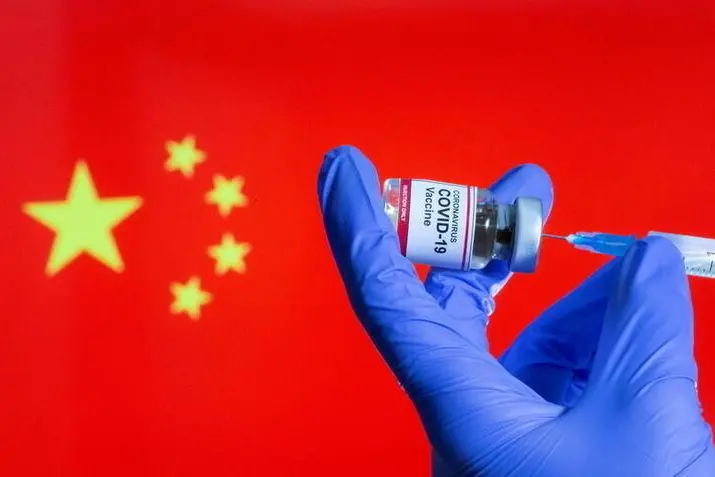PHOTO
(The author is a Reuters Breakingviews columnist. The opinions expressed are her own.)
HONG KONG - A once-in-a-lifetime pandemic opportunity is being undermined by an equally rare corporate governance disaster. Sinovac Biotech’s Covid-19 vaccine tests were showing promising signs before hitting a snag this week. The Chinese company’s shareholders can only sit by and watch, however, as an epic saga unfolds featuring a buyout attempt, boardroom coup and rarely triggered poison pill.
Out of the roughly four dozen coronavirus vaccines undergoing human trials, Sinovac's experimental "CoronaVac" had been gaining traction. At home, the company inoculated thousands of its own employees and their families, and potentially many more as part of China's emergency programme to protect essential workers and other high-risk groups. Preliminary results last month from 9,000 volunteers in Brazil found that the injection appeared to be safe, but late on Monday the country’s health regulator suspended testing after a “severe adverse effect” that took place on Oct. 29.
At stake is a portion of the coronavirus immunisation market, which should amount to $40 billion of sales in the next year alone, Morningstar analysts estimate. That’s more than the entire vaccine business today. As a result, biotechnology shares have been on a tear: Those of Moderna and China's CanSino, for example, have nearly quadrupled and more than doubled, respectively, since the start of the year. News of a breakthrough from $220 billion Pfizer on its experimental vaccine sent its own shares up nearly 8% on Monday while also propelling broader markets, especially travel and leisure stocks.
Nasdaq-listed Sinovac was unable to capitalise. Likewise, investors can’t sell on the recent bad news either. Its shares have been halted since February 2019 – long before Covid-19 came along – frozen at a $640 million market capitalisation.
The corporate intrigue dates back to 2016 when Chairman and Chief Executive Yin Weidong unveiled a management buyout offer. He was unexpectedly outbid by a rival consortium headed by Sinovac’s minority joint-venture partner in China. Around the same time, Boston-based investment firm 1Globe Capital built up a 16% stake, according to documents submitted to U.S. securities regulators. As a defensive tactic, Yin's board approved a shareholder rights plan – a so-called poison pill – the same year.
That set the scene for a dramatic shareholder meeting in early 2018, when a group of investors including 1Globe, its owner Jiaqiang "Chiang" Li and healthcare-focused fund Orbimed Advisors, mounted a proxy battle. They claimed victory, and the newly elected board promptly sacked Yin, who earlier had been implicated by Beijing People’s Court judgments in a bribery investigation, according to the company, but not charged.
Sinovac cried foul and refused to hand over control. It voted to trigger the poison pill, to flood the market with shares and dilute existing holders. It was the first time a company had done so in more than a decade, according to Reuters. Usually the deterrent effect is enough to ward off challengers or provide extra leverage in negotiations.
Matters escalated again in 2018, when the battle for control became even more aggressive. Sinovac accused Pan Aihua, the rogue executive who had led the competing buyout attempt, of forcibly taking over the company's corporate office in Beijing and " limiting the physical movement of the employees".
Both acquisition efforts have been dropped, but the question of which Sinovac board is the legitimate one is making its way through foreign and U.S. courts. Until the matter is settled, the poison pill remains in limbo.
A recent U.S. Securities and Exchange Commission investigation sheds more light. It concluded that Li had secretly collaborated with other shareholders to overthrow four of Sinovac’s five board members and install one of Li's relatives as a director. Moreover, Li had stealthily amassed a nearly one-third stake in Sinovac through 1Globe and Canadian brokerage accounts opened by his relatives ahead of the shareholder vote. Because none of this was disclosed at the time, as required by the SEC, the agency fined Li and 1Globe.
Those findings suggest that the company might have been justified to go to the extreme lengths of using the poison pill. That will be of little comfort to outsiders stuck with Sinovac shares that are indefinitely untradeable. Its tangled and unwieldy structure is equally to blame, and was known to investors.
The Beijing-based company is incorporated in Antigua and Barbuda, and therefore subject to corporate rules there. Its shareholder rights contract is being litigated in Delaware. The different legal jurisdictions are one factor contributing to the stalemate.
Moreover, Chinese laws also govern the company. As an offshore-incorporated entity, it operates several so-called Sino-foreign equity joint ventures on the mainland. That adds yet another layer of confusion and risk. As tortuous as the whole setup sounds, it isn’t especially unusual. That makes these courtroom trials as important for investors as any that Sinovac conducts in a laboratory.
CONTEXT NEWS
- Brazil's health regulator said on Nov. 9 it had suspended clinical trials for China's Sinovac coronavirus vaccine, due to a "severe adverse effect" that took place on Oct. 29 but did not immediately provide further details.
- The vaccine had proven to be safe, the Butantan Institute carrying out the testing said on Oct. 20 while noting that the results were only preliminary and that data would not be released until the trial on all 13,000 volunteers was completed.
- The company’s CoronaVac also had been included in China's national emergency inoculation programme started in July. Sinovac Chief Executive Yin Weidong said about 90% of the company's employees and their families had been inoculated at the time of an interview with Reuters published on Sept. 6.
(The author is a Reuters Breakingviews columnist. The opinions expressed are her own.)
(Editing by Jeffrey Goldfarb and Katrina Hamlin) ((robyn.mak@thomsonreuters.com; Reuters Messaging: robyn.mak.thomsonreuters.com@reuters.net))





















